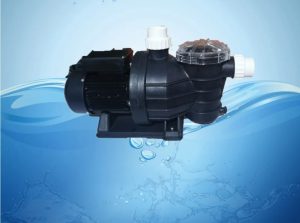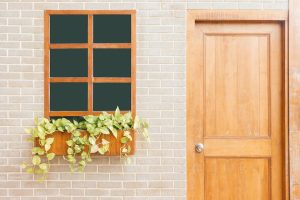A Pool Owner’s Guide to Pool Pumps

Swimming is a thrilling experience. Among other benefits, it is a great workout which adds the pleasures that aquatic life offers.
However, when swimming is done in a man-made water body, a lot more is required. For such, the pool and equipment must be kept in good working condition. For more on the benefits of doing this, you can click here.
Pumps are one of the equipment that help keep the pool in great shape.
In this article, we will answer frequently asked questions about this machine. Hopefully these answers will help you understand how the machine works.
What Is the Function of a Pool Pump?
As with any other kind of pump, these supply and retrieve water to and from the swimming pool.
This machine can be termed the central processing unit of the entire pool. It ensures that the chemicals used in the treatment process are well circulated. This is important in ensuring balance and evenness in the distribution of the chemicals.
How to choose the right pool pump?
Choosing the right pool pump for your swimming pool is important for maintaining optimal circulation and ensuring efficient operation. Here are some factors to consider when selecting a pool pump:
- Pool Size: The size of your pool is the primary factor to consider when choosing a pool pump. The pump should be able to circulate all the water in the pool within 8 hours. To determine the right pump size, you need to know your pool’s volume in gallons. This can be calculated by multiplying the length, width, and depth of the pool, and then multiplying that number by 7.5.
- Flow Rate: The flow rate of a pool pump is measured in gallons per minute (GPM) or gallons per hour (GPH). The flow rate you need will depend on the size of your pool and the amount of water that needs to be circulated. To determine the right flow rate, you should consult with a pool professional or refer to the manufacturer’s recommendations.
- Horsepower: Pool pumps come in different horsepower (HP) ratings. The higher the horsepower, the more powerful the pump will be. However, a higher horsepower pump may not always be necessary, and may even lead to higher energy costs. It’s important to choose a pump with the right horsepower for your pool size and flow rate requirements.
- Energy Efficiency: Pool pumps can consume a lot of energy, so it’s important to choose an energy-efficient model. Look for pumps that are certified by organizations such as ENERGY STAR or meet the standards of the California Energy Commission (CEC). These pumps are designed to use less energy while still maintaining proper circulation.
- Noise Level: It can be noisy, so it’s important to consider the noise level when choosing a pump. Look for pumps with features such as a quiet motor or a sound-dampening housing.
By considering these factors, you can choose the right pool pump for your swimming pool, ensuring optimal circulation and efficient operation.
How Do they Work?
There are certain parts of the pump that are important for this process. The machine draws water through a part known as the skimmer before it is channeled through another part known as the filter.
The filter, which is an especially important part for the necessary treatment, ensures that the water is clean and treated before letting it back in.
What Is the Importance of this Tool?
A large body of water without an outlet is going to stink and constitute a nuisance. To avoid such a situation, this machine is very important.
Its ability to effectively retrieve and supply treated water is important. As a result, having a suitably capable pump should not be questioned.
However, certain pools exist without this essential feature. For such, the process of maintenance can be a nightmare. If you are considering having a pool, you should give serious thought to installing the right kind of pump.
What are the Parts of a Pool Pump?
Several parts and components help this equipment perform its water retrieval and supply task. As briefly as possible, let us list some of them.
The Housing
The housing has some essential components inside it. Components such as the motor, impeller, diffuser, basket, cover, and a few other parts are inside its frame.
Gasket and Seal
To keep the water running well, the pad of the machine should be dry. The seals and gaskets are important for making this happen. When these parts are not in good working condition, some challenges can be experienced.
For instance, rather than water, air may fill up the pump. This will affect or make the pumping of water impossible. There are various seals and gaskets located in strategic parts of the machine.
The Motor
This is the part that enables the machine to pump and circulate water effectively. Any problem with this part will put a stop to the circulation of water.
There are various kinds of motors installed by various brands. An example is single-speed, as well as the dual-speed motors. All these have their peculiarities.
The Impeller
This part is what helps the motor generate sufficient force for pumping water. The impeller has two discs that are joined together. These discs are designed in a manner that allows the fan blades to work effectively.
There are more parts to this all important pool equipment. However, the ones listed above are among the most important of them.
How to troubleshoot common pool pump problems?
If your pool pump is not working properly, here are some common problems and their solutions:
- Pump won’t start: Check the circuit breaker and make sure the pump is receiving power. Also, check the motor’s capacitor and replace if needed.
- Pump is noisy: Check the impeller and volute for debris. Also, check the motor’s bearings for wear.
- Pump is leaking: Check the pump’s seals for any leaks and replace them if needed.
When Should the Pump be Used – Day or Night?
The timeframe for using the pump is determined by 2 major factors:
- Maximum Chemical Effect
- Financial Implication
To get the best of the chemicals used to treat the water, using the machine in the daytime is better. Chemicals such as chloride need sunlight to act properly.
On the other hand, the financial cost of running the machine during the day can be on the high side. As a result, many users prefer the equipment working at night.
You can strike a balance in between. This is to ensure that the chemicals take the proper course while also ensuring that you are not financially drained.
During the summer when swimming is more likely to occur, you should pay attention to the proper use of treatment chemicals. As a result, you may need more daytime use. Other seasons can see a reduction in daytime machine activity.
However, it is important that you get the right pump to help you treat and keep the pool water in great shape. For suggestions on the ideal equipment, you can visit sites like https://bluewaterspoolservices.com/best-pool-pump/ where you can get quality information.
Conclusion
Owning a pool entails more than having a place where you can always enjoy a good swim. You need to keep the water environment in perfect shape. To do this effectively, only a good pool pump will suffice.
In this article, we have answered some relevant questions about this equipment. Areas such as the function, importance, parts, and use of this machine has been discussed. We therefore hope that you now have enough information to enable you easily get the right machine so your pool maintenance duties will be more efficient.






